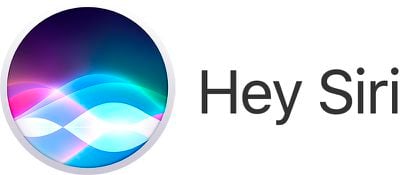Since Siri's introduction in the iPhone 4s in 2011, responses to Apple's AI assistant have often weighed towards the unfavorable side, most recently in several HomePod reviews that specified Siri as one of the biggest downsides of owning the speaker. This week, Siri creator, co-founder, and former board member Norman Winarsky added in his own commentary about the assistant's current state, saying that he didn't think this is where Siri would be at this point (via Quartz).
In 2008 Siri began as spin-off of SRI International, where Winarsky was the President, and eventually launched as an app for iOS in February 2010. Two months later Apple acquired Siri, and just over a year after that introduced it within the iPhone 4s, shutting down the standalone app shortly thereafter. Seven years later, Winarsky said that Siri's capabilities have fallen short of his earlier predictions for where he thought the assistant, and Apple's development, would end up.

Specifically, Winarsky's comments focus on what Siri's intention was "pre-Apple" versus where the assistant is today. According to the co-founder, Siri was originally meant to be incredibly intelligent in just a few key areas -- travel and entertainment -- and then "gradually extend to related areas" once it mastered each. Apple's acquisition pivoted Siri to an all-encompassing life assistant, and Winarsky said that this decision has likely led Apple to search "for a level of perfection they can't get."
But part of it is also likely because Apple chose to take Siri in a very different direction than the one its founders envisioned. Pre-Apple, Winarsky said, Siri was intended to launch specifically as a travel and entertainment concierge. Were you to arrive at an airport to discover a cancelled flight, for example, Siri would already be searching for an alternate route home by the time you pulled your phone from your pocket—and if none was available, would have a hotel room ready to book.
It would have a smaller remit, but it would learn it flawlessly, and then gradually extend to related areas. Apple launched Siri as an assistant that can help you in all areas of your life, a bigger challenge that will inevitably take longer to perfect, Winarsky said. [...] “These are hard problems and when you’re a company dealing with up to a billion people, the problems get harder yet,” Winarsky said. “They’re probably looking for a level of perfection they can’t get.”
Last September, Apple VP of marketing Greg Joswiak commented on a few aspects of Siri's development, stating that Apple's aim from the beginning has been to make Siri a "get-s**t-done" machine. Joswiak did a series of interviews around the same time last September, after Siri leadership moved to Craig Federighi and before the assistant's six year birthday. In one, he discussed the claim that Siri development has been hindered by Apple's commitment to privacy, describing these reports as "a false narrative."
Winarsky didn't specifically comment on Apple's focus on privacy and how that could be a factor in Siri's development, but he did state that there's one simple factor absent from Siri today: "Surprise and delight is kind of missing right now."























